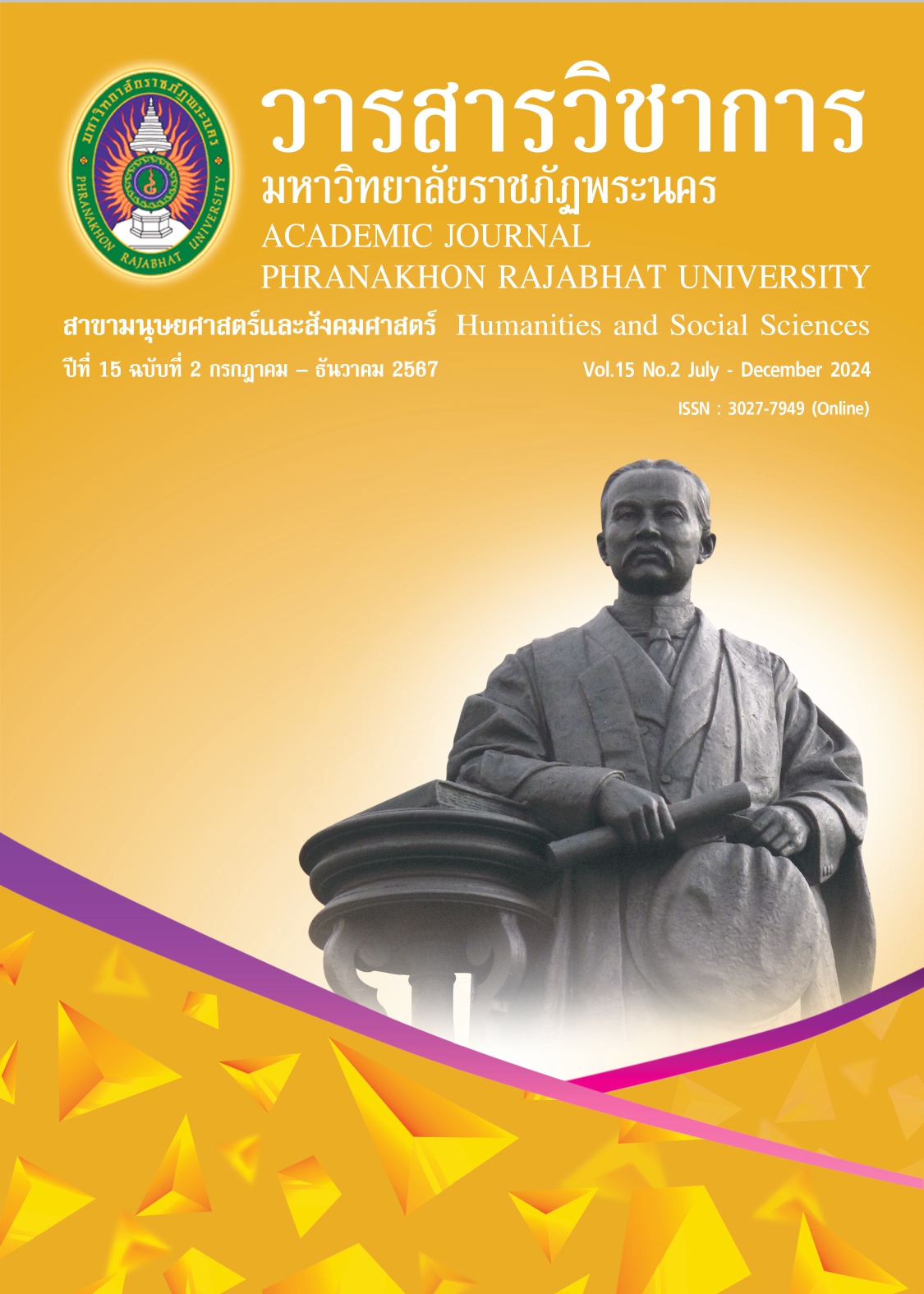CULTURAL HERITAGE’S MANAGEMENT: A COMPARATIVE STUDY OF THAILAND AND VIETNAM
Keywords:
Cultural Heritage Management, Thailand, VietnamAbstract
This research aims to 1) study the management of cultural heritage in Thailand and Vietnam and 2) compare the management practices of cultural heritage in both countries. The methodology is qualitative research, with data collected from documentary reviews and semi-structured interviews with five key informants. The results show that the management of cultural heritage sites in the two countries differs significantly due to their unique civilizations and varying management policies. Thailand's civilization, influenced by India and the Khmer Empire, developed into distinct national Thai arts and culture. Cultural heritage in Thailand is closely tied to elite groups, particularly Buddhist temples, which were often built by the monarchy and dominated the cultural heritage landscape. The Fine Arts Department is the responsible institution for cultural heritage governance. Buddhist temples have become critical assets in the tourism industry, with local communities benefiting from the commodification of these sites.
In contrast, Vietnam's historical development was heavily influenced by China for much of its history. The Socialist Republic of Vietnam's government holds the authority to register community cultural heritage under policies of "Folklorization" and "Exoticization." The Vietnamese government has successfully secured funding for restoration projects from European countries and UNESCO. However, Vietnam also has Cham castles from the ancient Champa kingdom, one of the oldest civilizations in Southeast Asia. A challenge remains, as the Cham ethnic group is a minority, and many Vietnamese people are not well-acquainted with Cham castles. If the Vietnamese government provides more support for preserving Cham castles, and if the Thai government can balance the benefits among various ancient sites, managing cultural heritage in both countries could achieve greater success and sustainable development for local communities.
References
Chuenboon, P. (2023, 23 Oct.). Vietnam World Heritage. Thai Academician. Ayutthaya Studies Institute. Phranakhon Si Ayutthaya Rajabhat University.
Hwang, S. (2023, 18 Oct.). Vietnam World Heritage Situation. Vietnamese Local People.
Ministry of Culture. Department of Fine Arts, (n.d.). The Act on Ancient Monuments, Antiques, Objects of Art and National Museums, 1961 as amended by Act (No.2), 1992. Retrieved from http://www.finearts.go.th/law/ [2023, 12 Aug.]
Nakhon Luang District Governor. (2021). Nakhon Luang District. Retrieved from https://ww2.ayutthaya.go.th/personal_board/?page=1&cid=33 [2023, 26 Aug.]
Nguyen, Kim-Dung. (n.d.). Intangible Cultural Heritage Safeguarding System in Vietnam. Retrieved from https://ich.unesco.org/doc/src/00174-EN.pdf [2023, 12 Aug.]
Niladech, S. (2003). Wat Pra Si San Petch. Bangkok: Ayutthaya Historical Site. 3rd Division of Fine Arts Department, Ministry of Cultural.
Pohngjit, P. (2018). Historic City of Ayutthaya: Dismissal of the World Heritage. Journal of Social Sciences. Srinakharinwirot University. 21, 148-158. (In Thai) Retrieved from http://ejournals.swu.ac.th/index.php/JOS/article/view/10817/8981 [2023, 26 Aug.]
Recherches sur les monuments du Champa rapport de la mission polono-vietnamienne 1981-1986. Fine Art Department. (1999). Nanthaporn Banluesin (Interpreter). Bangkok: Seven Printing Group.
Salemink, O. (2013). “Appropriating Culture: The Politics of Intangible Cultural Heritage in Vietnam” In State, Society and the Market in Contemporary Vietnam: Property, Power and Values, edited by Hue-Tam Ho Tai and Mark Sidel, pp.158-180, 2015, Routledge. Tiamsoon Sirisrisak (Interpreter).
Suteerattanapirom, K. (2005). The Development of Concept and Practice of Ancient Monuments Conservation in Thailand. (Master of Arts Thesis). Silpakorn University, Bangkok.
Thongchan, S., Hoharin, S., Chomchom, N., & Kertchuen, P. (2013). Problems concerning legal enforcement on Archaeological sites, artifact and sacred places: case study on Ayutthaya province island. The Secretariat of The Senate.
UNESCO. (2023). Thailand. Retrieved from https://whc.unesco.org/en/statesparties/th/ [2023, 18 Aug.]
UNESCO. (2023). Viet Nam. Retrieved from https://whc.unesco.org/en/statesparties/vn/ [2023, 18 Aug.]
UNESCO. (2009). The World’s Heritage. UNESCO Publishing.
Downloads
Published
How to Cite
Issue
Section
License
Copyright (c) 2024 Academic Journal Phranakhon Rajabhat University

This work is licensed under a Creative Commons Attribution-NonCommercial-NoDerivatives 4.0 International License.
"บทความวิชาการในวารสารฉบับนี้ ถือเป็นความรับผิดชอบของผู้เขียนเท่านั้น"
สงวนลิขสิทธิ์ตามพระราชบัญญัติลิขสิทธิ์




